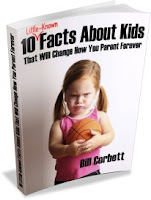Parents generally see their children as wonderful gifts from the heavens but children don’t always see each other in that same light. They first see their primary caregivers, and the love and attention they get from them, as a limited commodity. They then see their siblings as competition for that love and attention and sometimes feel they have to fight for it.
Kenneth Cole Reaction Heart Wink Boot (Little Kid/Big Kid),Plum,4 M US Big Kid
When a
new child enters the family, the oldest or older children sometimes feel as if
they have been dethroned and now have to share their parents with this new
child. This can bring about feelings of
animosity and jealousy between children.
To deal with this problem effectively, parents can find ways that will allow
the older child to become a teacher or leader to the younger child(ren). You can also give the older child special
privileges and give them special time with you, such as one-on-one dates to
help them feel like they haven’t lost their place in the family.
Get 15% off Spookishly Tasty Halloween Treats from ThePopcornFactory.com! Code: SCARY15
Get 15% off Spookishly Tasty Halloween Treats from ThePopcornFactory.com! Code: SCARY15
 Fighting
and other forms of sibling rivalry also occur as a result of these
feelings. Avoid racing into every little
argument or disagreement. If you do, it
will teach your children to create problems just to get you involved. It will also train them that they are NOT
accountable for stopping fights and working things out, it teaches them instead
that YOU are responsible for doing that.
Because you ARE responsible for keeping everyone safe, sometimes the
only solution is to just separate them.
This is especially true for when toddlers and preschoolers hit one
another or begin to fight. It just means
they’ve had enough of that other person for a while and they want them out of
their space.
Fighting
and other forms of sibling rivalry also occur as a result of these
feelings. Avoid racing into every little
argument or disagreement. If you do, it
will teach your children to create problems just to get you involved. It will also train them that they are NOT
accountable for stopping fights and working things out, it teaches them instead
that YOU are responsible for doing that.
Because you ARE responsible for keeping everyone safe, sometimes the
only solution is to just separate them.
This is especially true for when toddlers and preschoolers hit one
another or begin to fight. It just means
they’ve had enough of that other person for a while and they want them out of
their space. Try CreepSquash Now. FREE 30-Day Trial Offer!
Avoid
using punishments like time out and avoid taking sides. When a conflict breaks out, just separate
both of them. It doesn’t matter who
started it or who did what, just separate them in different spaces to be
apart. And during this moment of
behavior management, remain calm and talk very little. You can easily transfer your own negative
feelings into the relationship between the children. Sometimes the conflict between the children
is actually an imitation of what’s going on with the adults (see the last FACT
for more details).

For Email Newsletters you can trust
This is a brief excerpt from Bill Corbett’s
new eBook, “10 Little-Known Facts About Kids That Will Change How You Parent
Forever!” Download the book today for
just $4.99 by going to http://store.payloadz.com/go?id=1044394.
Bill Corbett is the author of the
award-winning parenting book series, LOVE, LIMITS, & LESSONS: A PARENT'S
GUIDE TO RAISING COOPERATIVE KIDS (in English and in Spanish) and the executive
producer and host of the public access television show CREATING COOPERATIVE
KIDS. As a member of the American Psychological Association and the North
American Society for Adlerian Psychology, Bill provides parent coaching and
keynote presentations to parent and professional audiences across the country
(http://www.OnlineParentCoaching.com). He sits on the board of the Network
Against Domestic Abuse, the Resource Advisory Committee for Attachment
Parenting International, and the management team of the Springfield Parent
Academy. Bill's practical experience comes as a father of 3 grown children, a
grandfather of two, and a stepdad to three.
Get more parenting help at http://www.CooperativeKids.com.





Comments
Post a Comment